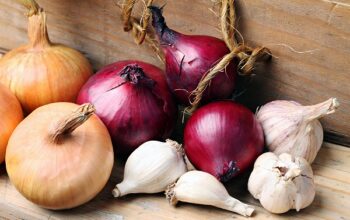Bad breath, medically known as halitosis, can be an embarrassing and socially challenging condition that affects millions of people worldwide. While many factors contribute to unpleasant breath, the foods we consume play a significant role in creating those unexpected and often unwelcome odors.
The Science Behind Food-Related Bad Breath
Understanding how certain foods impact our breath goes beyond simple surface-level odors. When we consume specific foods, their chemical compounds enter our bloodstream and can be expelled through our lungs and skin, creating persistent and sometimes overwhelming breath odors.
Coffee: The Morning Breath Destroyer
For many, coffee is a morning necessity, but it’s also a major contributor to bad breath. The beverage’s natural enzymes and high acidity create a perfect environment for bacteria growth. Moreover, caffeine reduces saliva production, leading to dry mouth – a primary cause of halitosis.
- Caffeine decreases saliva production by up to 30%
- Reduced saliva allows bacteria to multiply rapidly
- Coffee’s acidic nature promotes bacterial growth
Onions and Garlic: The Sulfur Superstars
Perhaps the most notorious breath offenders, onions and garlic contain powerful sulfur compounds that do more than just linger on your breath. When consumed, these foods release allicin, an amino acid that gets absorbed into the bloodstream and eventually expelled through your lungs and skin.
The result? A pungent odor that can persist for hours, even after thorough tooth brushing. Interestingly, these foods’ strong compounds aren’t just about bad breath – they also offer significant health benefits, including anti-inflammatory and immune-boosting properties.
Horseradish: The Unexpected Breath Culprit
Less commonly discussed but equally potent, horseradish contains isothiocyanate, a compound responsible for its intense, sinus-clearing properties. This chemical doesn’t just create a momentary burn – it can significantly impact breath odor and create a lasting pungent smell.
Canned Tuna: The Fishy Breath Problem
Seafood lovers, beware. Canned tuna, particularly when packed in water, undergoes oxidation that creates a distinctive and often unpleasant odor. The process of fish breaking down releases trimethylamine, a compound known for its strong, fishy smell that can persist long after eating.
Preventing and Managing Bad Breath
While these foods can contribute to bad breath, several strategies can help mitigate their effects:
- Maintain excellent oral hygiene
- Stay hydrated to promote saliva production
- Use sugar-free gum to stimulate saliva
- Consider breath mints or natural breath fresheners
- Consult a dentist if bad breath persists
When Bad Breath Signals Something More
Persistent bad breath can sometimes indicate underlying health conditions such as:
- Dry mouth (xerostomia)
- Gum disease
- Digestive issues
- Sinus infections
If you’re experiencing chronic bad breath that doesn’t improve with dietary changes and oral hygiene, it’s crucial to consult a healthcare professional.
Final Thoughts
While certain foods can contribute to unpleasant breath, awareness and proactive management can help minimize their impact. By understanding the science behind food-related halitosis and implementing strategic oral care practices, you can confidently enjoy your favorite foods without social embarrassment.





